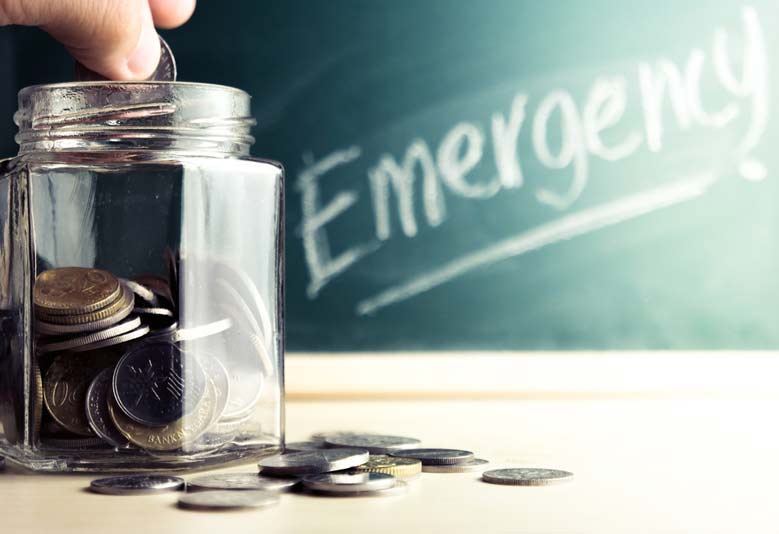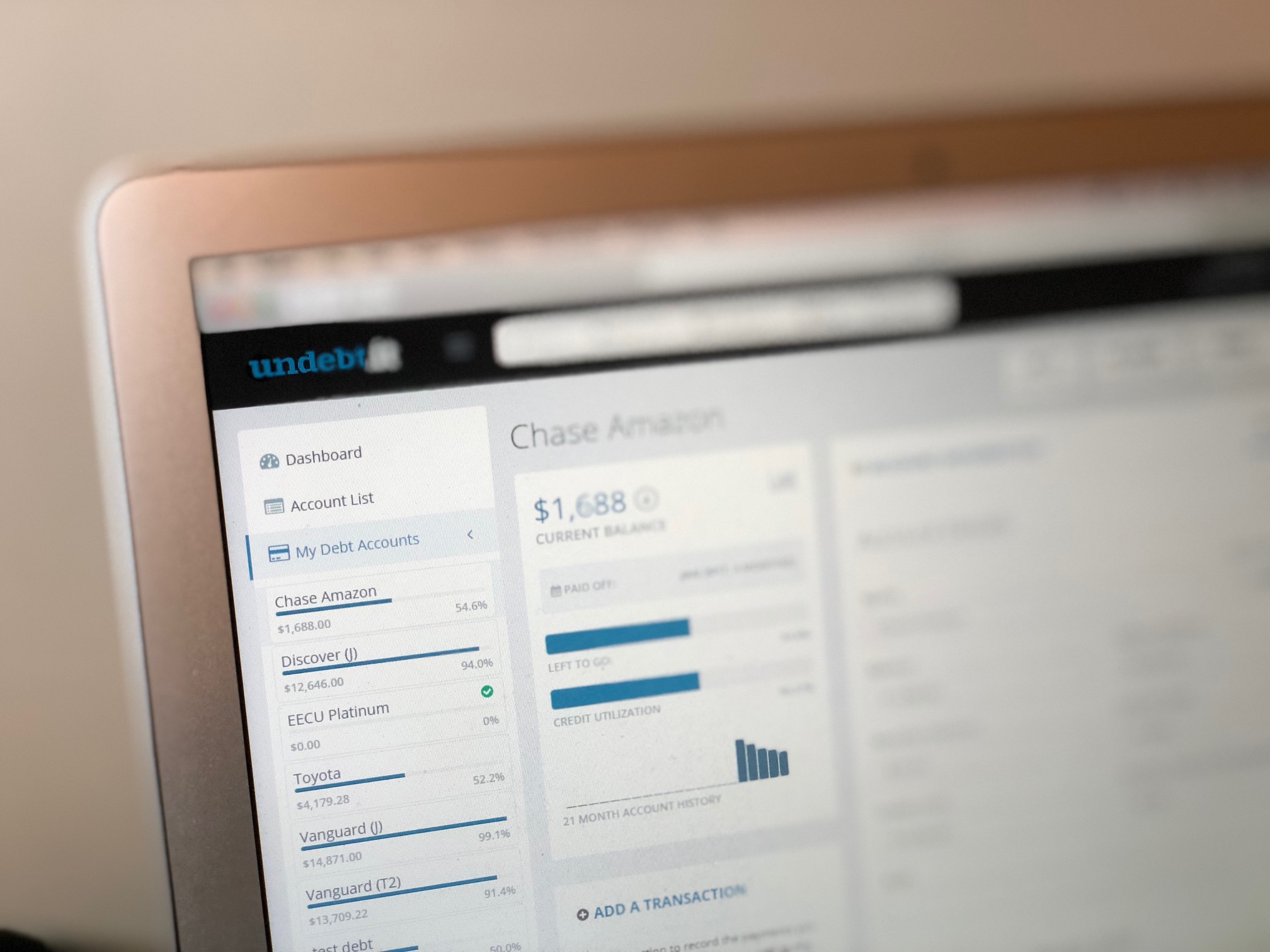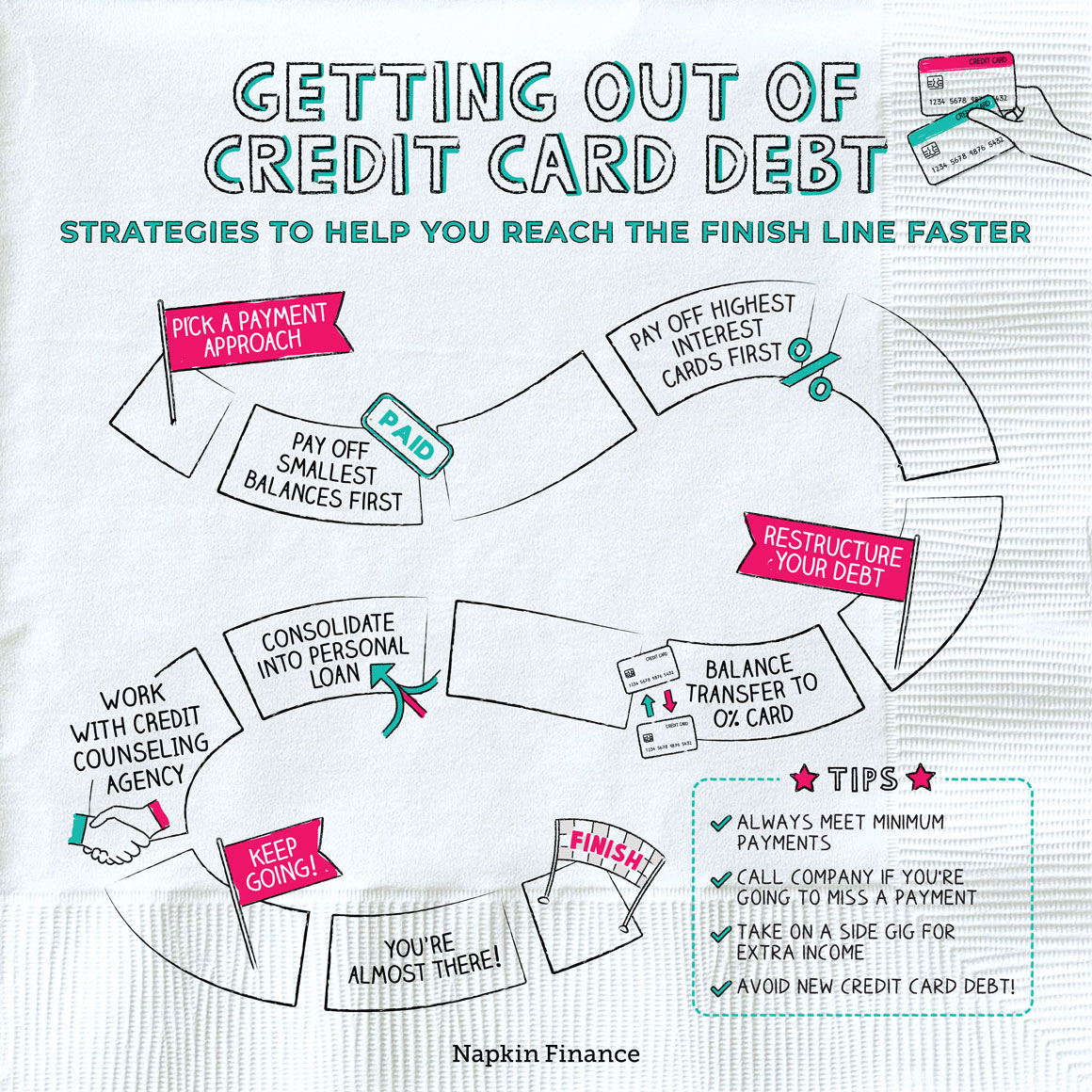
Get Rid of Debt: Expert Tips for Reducing Credit Card Debt
Written: Editor | October 5, 2023

Strategies for Paying Off Credit Card Debt
Creating a budget and tracking expenses
One of the first steps towards reducing credit card debt is to create a budget and closely track expenses. This allows individuals to gain a clear understanding of their financial situation and identify areas where they can cut back on spending. By setting a realistic budget, individuals can allocate enough funds towards paying off their credit card debt while still meeting their other financial obligations. Tracking expenses also helps in identifying any unnecessary or impulsive spending habits which can be eliminated to free up more money for debt repayment.
Developing a debt repayment plan
Once a budget is in place, it's important to develop a debt repayment plan. There are various strategies individuals can consider when paying off credit card debt:
-
Snowball method: This involves prioritizing debts with the smallest balances first, while making minimum payments on all other debts. Once the smallest debt is paid off, the money that was being used for that debt can be redirected towards the next smallest debt, creating a snowball effect.
-
Avalanche method: With this approach, individuals focus on paying off debts with the highest interest rates first, while making minimum payments on other debts. By tackling high-interest debts first, individuals can potentially save more money in interest payments in the long run.
-
Balance transfer: Another option is to transfer high-interest credit card debt to a card with a lower interest rate. This can help save money on interest payments, but it's important to carefully consider any balance transfer fees and the terms of the new card.
By implementing these strategies and staying committed to debt repayment, individuals can gradually reduce their credit card debt and work towards financial freedom.

Smart Credit Card Usage
When it comes to managing credit card debt, smart usage is key. By following a few important tips, individuals can reduce their credit card debt effectively and regain control over their finances.
Avoiding unnecessary spending and impulse buying
One of the most crucial steps to reducing credit card debt is to resist the temptation of unnecessary spending and impulse buying. It is important to differentiate between needs and wants and only make purchases that are essential. Before making a purchase, take a moment to consider whether it is truly necessary and fits within your budget. This can help avoid accumulating further debt and ensure that you have enough funds to pay off existing credit card balances.
Using balance transfer or consolidation loans wisely
Balance transfer and consolidation loans can be effective tools for reducing credit card debt. By transferring high-interest balances to a credit card with a lower interest rate or consolidating multiple debts into a single loan, individuals can save money on interest payments and streamline their debt repayment process.
However, it is essential to use these options wisely. Carefully consider the terms and conditions, including any fees or promotional periods, before opting for a balance transfer or consolidation loan. It is important to have a clear plan for repaying the debt within the designated timeframe to avoid incurring additional fees or interest charges. Additionally, refrain from using the newly freed credit on the original cards to prevent falling back into debt.
By practicing smart credit card usage, including avoiding unnecessary spending and utilizing balance transfer or consolidation loans wisely, individuals can take significant steps towards reducing their credit card debt and achieving financial stability. Remember, financial discipline and responsible spending are the keys to successful debt management.
:max\_bytes(150000):strip\_icc()/debt-settlement.asp\_Final-e6b6d7d47d8049c1a4852940b13e8b2e.jpg)
Negotiating with Credit Card Companies
When it comes to reducing credit card debt, negotiating with credit card companies can be a helpful strategy. By taking proactive steps, individuals can potentially lower interest rates and develop manageable payment plans. Here are some tips to consider when negotiating with credit card companies.
Negotiating interest rates and payment plans
-
Research and comparison: Before starting negotiations, research interest rates and payment plans offered by other credit card companies. This information can be used as leverage to negotiate better terms with your own credit card company.
-
Contact your credit card company: Reach out to your credit card company and explain your financial situation. Request a lower interest rate or the possibility of a debt repayment plan with lower monthly payments.
-
Highlight your payment history: If you have a good payment history or have been a long-term customer, emphasize these positive aspects. Credit card companies may be more willing to negotiate with loyal customers.
Seeking professional assistance if needed
-
Credit counseling agencies: If negotiating on your own seems overwhelming, consider seeking help from a credit counseling agency. These professionals can guide you through the negotiation process and offer advice on managing your credit card debt.
-
Debt consolidation: Debt consolidation can be an effective option for individuals struggling with multiple credit card debts. It involves combining all your debts into a single payment with a lower interest rate, making it easier to manage your finances.
Remember, when negotiating with credit card companies, be persistent and assertive. Always keep track of your communications and ensure that any agreements reached are put in writing. By taking these steps, you can work towards reducing your credit card debt and regaining control of your financial situation.

Building Healthy Financial Habits
Developing a savings plan and emergency fund
When it comes to reducing credit card debt, a crucial step is to establish a solid savings plan and emergency fund. Saving money allows you to have a safety net for unexpected expenses and prevents you from relying on credit cards to cover those costs. Here are some tips to get started:
-
Create a budget: Track your income and expenses to identify areas where you can cut back and allocate funds towards savings and debt repayment.
-
Set savings goals: Determine how much you want to save each month and prioritize it as a non-negotiable expense.
-
Automate your savings: Set up automatic transfers from your checking account to a designated savings account, making it easier to consistently save without the temptation to spend.
-
Build an emergency fund: Aim to save at least 3-6 months' worth of living expenses to cover any unexpected financial setbacks.
Establishing a realistic and sustainable debt-free lifestyle
To effectively reduce credit card debt, it's essential to adopt a realistic and sustainable approach to living debt-free. Here are some strategies to consider:
-
Create a debt repayment plan: Prioritize your debts based on interest rates or the snowball method (starting with the smallest debt first).
-
Negotiate lower interest rates: Reach out to your credit card companies and ask for a lower interest rate, which can save you money and help pay off debts faster.
-
Avoid new debt: Resist the temptation to accumulate more debt by only using credit cards for emergencies or necessary purchases.
-
Seek professional help if needed: If your debt feels overwhelming, consider consulting with a financial advisor or credit counseling agency for guidance and support.
By combining these strategies with discipline and perseverance, you can gradually reduce your credit card debt and build a strong financial foundation for the future.

Introduction
Reducing credit card debt can be a challenging task, but with the right strategies and resources, you can take control of your financial situation. This article will provide tips on how to effectively reduce credit card debt and achieve financial freedom.
Online tools and mobile apps for debt management
Harnessing the power of technology can greatly assist in managing and reducing credit card debt. There are several online tools and mobile apps available that can help you stay organized and develop a plan to pay off your debts.
-
Debt tracking: Utilize apps that allow you to input your debts, interest rates, and payment plans. These tools can help you visualize your debt and track your progress as you make payments.
-
Budgeting apps: Take advantage of budgeting apps that provide insights into your spending habits and help you identify areas where you can cut back to allocate more funds towards debt repayment.
Seeking advice from financial experts or credit counseling agencies
When facing a significant amount of credit card debt, it may be beneficial to seek guidance from financial experts or credit counseling agencies. These professionals can provide personalized advice and help develop a debt management plan tailored to your specific situation.
-
Financial advisors: Consult with a financial advisor who can provide expert advice on debt management, budgeting, and investment strategies. They can help you develop a comprehensive plan to reduce your credit card debt while also working towards your long-term financial goals.
-
Credit counseling agencies: These organizations offer guidance on managing debt and negotiating with creditors. They can help you explore options such as debt consolidation or settlement, and provide education and resources to improve your financial literacy.
By utilizing online tools, apps, and seeking professional advice, you can effectively reduce your credit card debt and take control of your financial future. Remember, it's important to stay committed to your debt reduction plan and make consistent payments to achieve your financial

Conclusion
Reiterating the importance of actively managing credit card debt
In a world where credit card debt seems to be on the rise, it is crucial for individuals to take control of their financial situation. These tips can serve as a starting point for reducing and eliminating credit card debt, but it is important to continually monitor and manage your finances proactively.
Encouraging readers to take the necessary steps towards financial freedom
While tackling credit card debt can be daunting, it is not an insurmountable task. By implementing the tips mentioned above and developing a solid plan, individuals can take significant steps towards financial freedom. It may require discipline, sacrifice, and time, but the end result will be worth it.
Remember, reducing credit card debt is not just about paying off balances. It's about changing financial habits and creating a sustainable approach to money management. Seek support from financial advisors or credit counseling services if needed, and remember that small steps can lead to big changes.
By reducing credit card debt, individuals can regain control of their financial future, reduce stress, and open up opportunities for long-term financial success. Begin today and start your journey towards a debt-free life.



